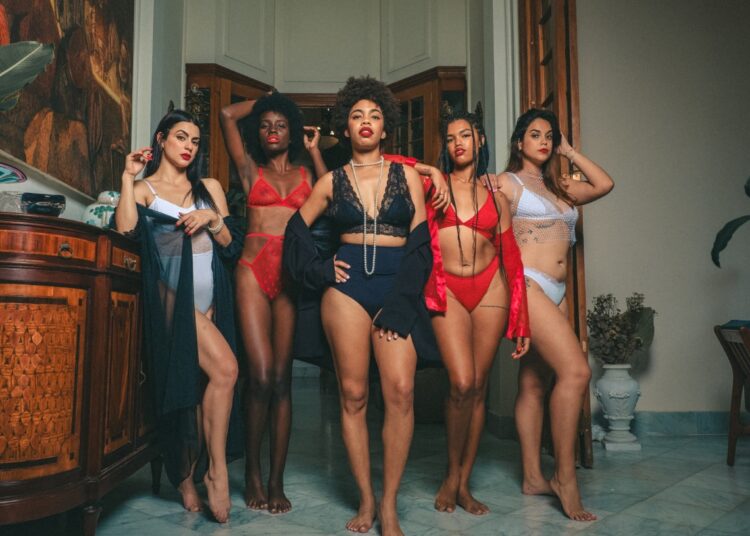A metallurgical engineer by training, Claudia López spends most of her time between sewing, scraps of fabric, measuring tapes and negotiations with suppliers of fabrics, yarns, zippers. Without any guarantee of success, in 2021 she left her position at Antillana de Acero Iron and Steel Factory to open a women’s lingerie business, a dream that would come true two years later, in 2023, and which today bears the name Aladia. “My mother came up with it. It’s the mix between the words ‘wings’ (ala) and ‘day’ (día). It means that there is always a new opportunity, a new day, to dream. The wings also symbolize softness and daintiness, and those characteristics had a lot to do with the type of product we wanted to create: underwear,” López told OnCuba.
One year after its launch in the Cuban market, the brand has become known for the originality of its proposal, in addition to the ergonomics and refinement of the garments that make up its catalog. Beauty-comfort continues to be an uncommon combination in the women’s intimate fashion sector and one that more and more women are looking for when considering who to buy from and what.
Made to measure for each customer, Aladia’s lingerie adapt to the body and therefore its production time is longer. It is designed to dress Cuban women of all sizes, and some well-known faces such as Lizt Alfonso, Luisa María Jiménez and Alicia Hechavarría have modeled for its collections.
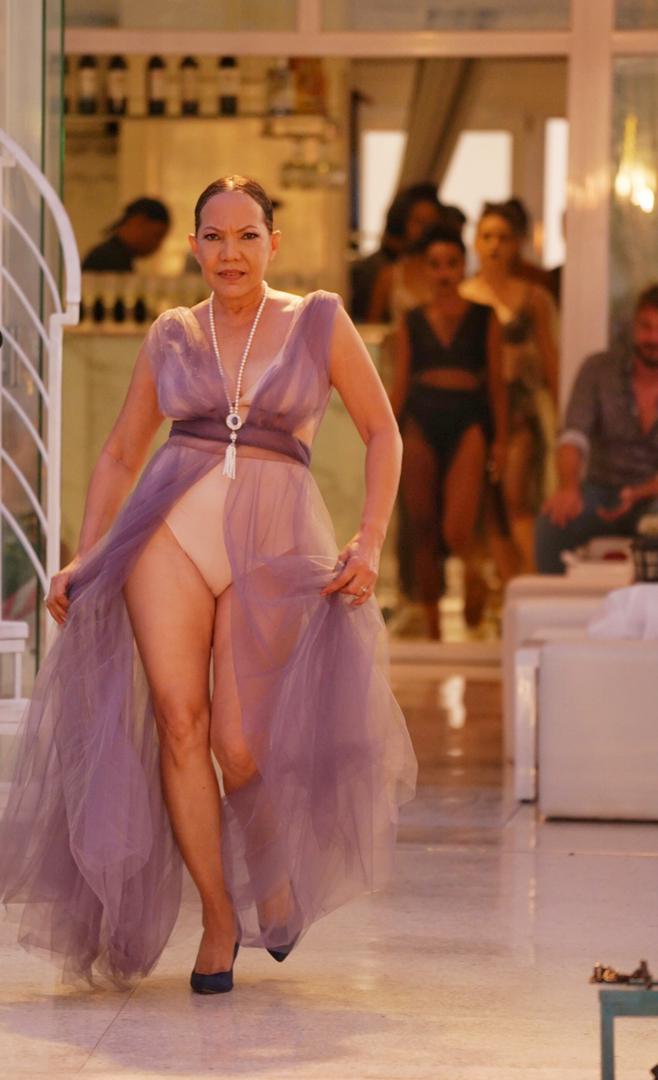
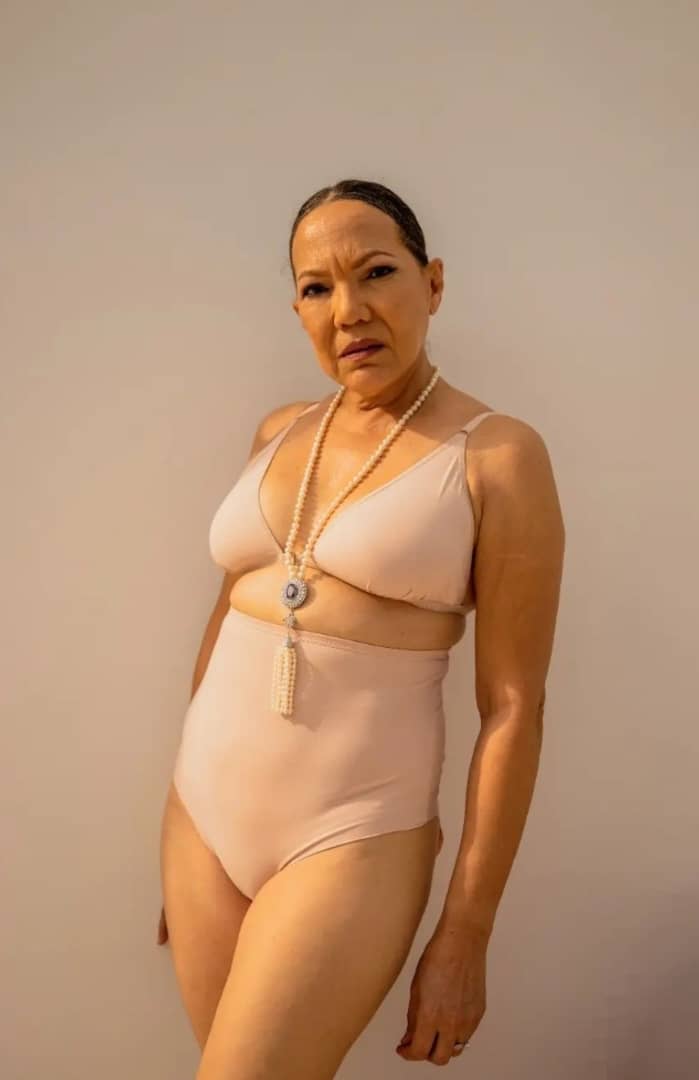
Claudia’s aspirations include making Aladia known outside of Cuba and making intimate fashion made on the island a reference in the Iberian American market. “We want our pieces to be sold in Mexico, Brazil and Spain,” she said.
But a business like this, manufactured entirely in Cuba and rowing in the opposite direction to fast fashion, must overcome countless obstacles to survive. These range from access to raw materials to the current needs of the customers in a context like the Cuban one.
Despite this, the 30-year-old Havana native did not let herself be paralyzed and decided to use frustration and awareness of this lack of offers as fuel to create her brand, now legally registered as the MSME Confecciones DIMOD SURL.
Claudia believes that the conditions, especially the legal framework, could be more favorable to entrepreneurs who have chosen to invest on the island and oxygenate the economy with their capital, talent and ideas, while diversifying the offers for the local population and promoting employment.
You are a metallurgical engineer, when did this journey as an entrepreneur begin?
At the beginning of 2021, during the pandemic, when I was finishing my social service. I decided to leave the state sector to create my own business. I began to think about the needs that existed in Cuba and I chose the textile sector. It was something that I liked, it was new for my community and it could be profitable. Yes, no matter how nice a project is, it has to feed you and your family.
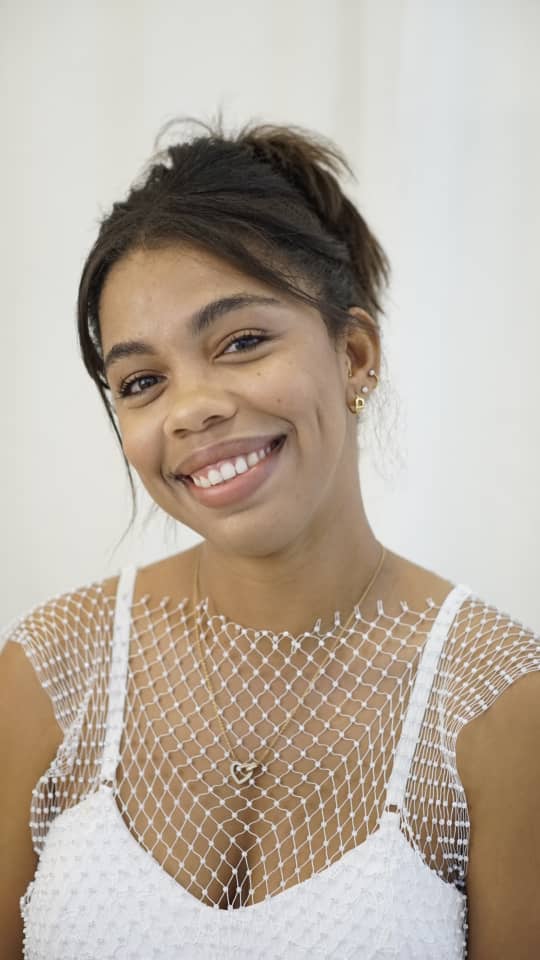
In addition to the economic objectives associated with the creation of any business, what do you propose with this venture?
From the beginning, I was interested in making the products known inside and outside of Cuba. I was also interested in making sure that the production was 100% here. There was no other way to feel proud. I wanted to be able to say in no uncertain terms: “This is made in Cuba.”
The only thing we import is the raw material: the fabric, the zippers, the cups. But we make everything here, the labor, the packaging, the designer perfume, the card we give our customers with their orders. Everything is made in Cuba.
A lot can be done in our country; whether it is complicated is another thing. Underwear is very difficult to produce, but it is possible to run a business of this type.
Another of my goals with the brand is that any woman can wear our lingerie, and that people perceive the quality of the manufacturing.
Many people think that if a product is Chinese, it is bad. With Aladia I want people to think the opposite and, in our case: “If this underwear is 100% Cuban, then it is of good quality.”
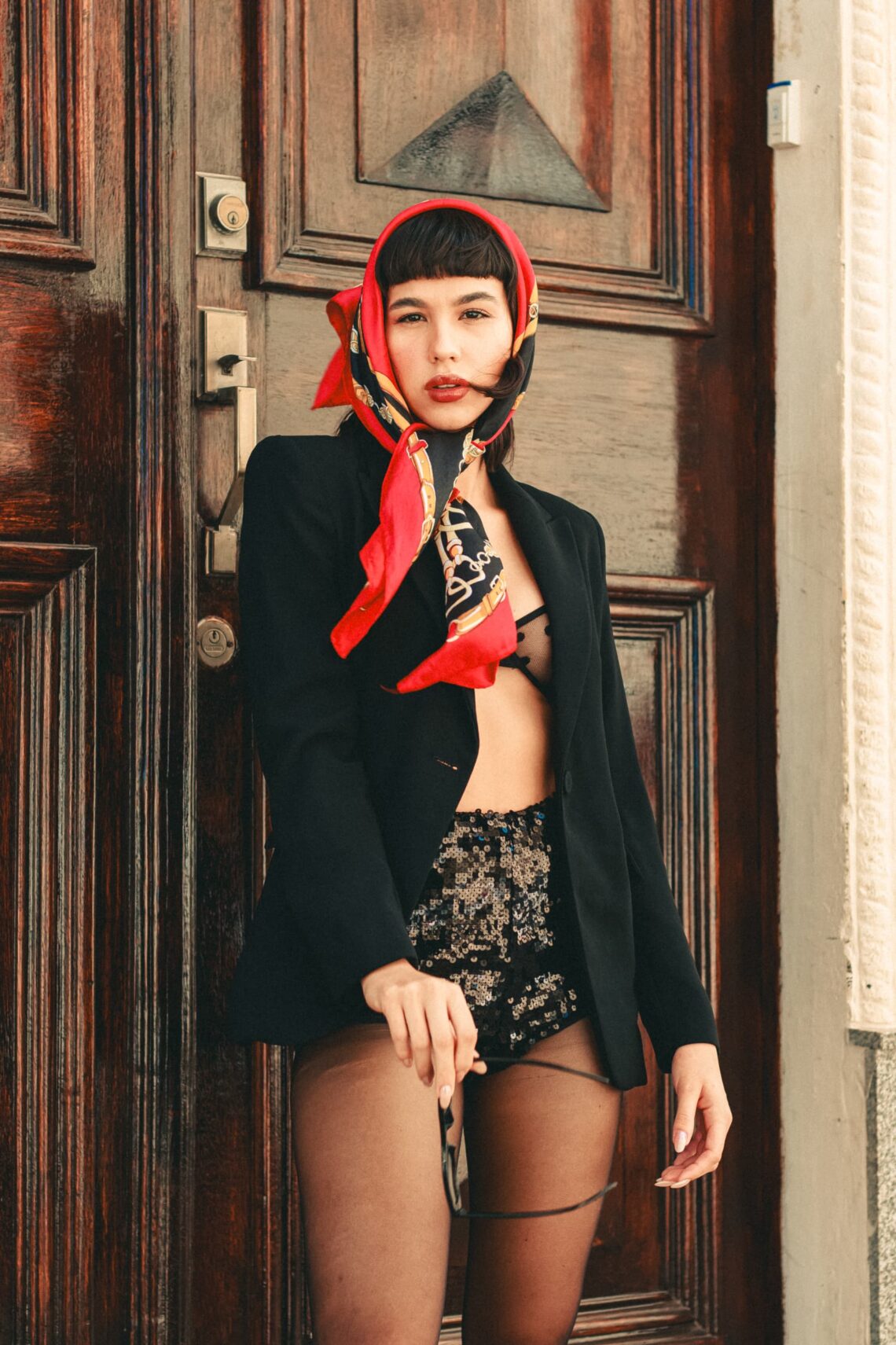
Among all the possible options, what motivated you to start in the women’s intimate fashion sector?
My initial ideas had nothing to do with intimate fashion. At first I thought about making clothes, but there were already many people covering the needs of low, medium and high income public. At that time, my mother told me that lingerie could be a good idea. She herself could never find pieces in her size and that were also of good quality.
I began to do market research and realized that, in fact, there was a big gap in this niche. What arrived in Cuba came from China, Panama, Ecuador, and we Cubans had to adapt to those bloomers and bras, which could be tight, baggy, or bother us, because the bra strap could come off or the bloomers would wear out in two washes.
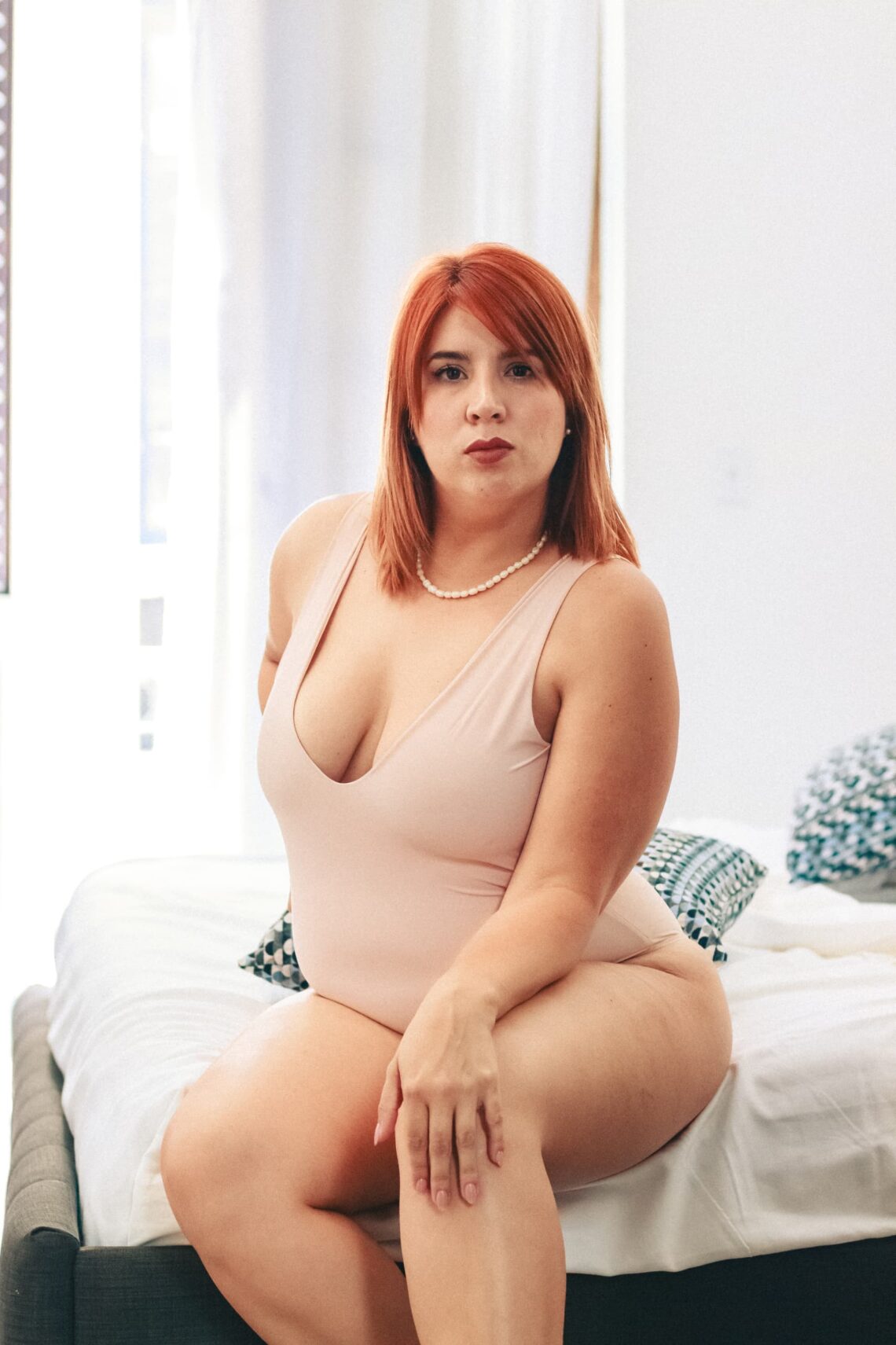
What makes common lingerie different from luxury lingerie? How does Aladia stand out?
The difference is the raw material, the exclusivity of the product (it is made to measure), its durability, its manufacturing, and its adaptability to the body. I wanted to differentiate myself. That is why, for the pieces we make, I chose microfiber fabric with some percentage of cotton, polyester, and elastane, to guarantee elasticity. To that base I added lace and tulle, and thread, which we buy mostly here in Cuba. We use loose thread in our entire range of colors: black, white, red, and beige.
I also decided that the pieces would be made to measure for each customer. We always try to make the seams as perfect as possible, so that there is not a single thread out of place; and if the customer has something unstitched, she can come to our workshop to have the piece fixed. We are interested in being excellent in the details.
That is why Aladia is not for the mass public, even though we want to reach a lot of people. But we do not work with standard sizes (S, M and L). This created a contradiction for me, because my idea was that many women would wear our underwear. However, I want my lingerie to adapt to the body, and not the other way around. Aladia’s collections are very durable, which is also why they are more expensive.

Can comfort and sensuality coexist in a piece of clothing?
Yes, perfectly. I myself thought not, that comfort could not be sensual and sensual could not be comfortable. Aladia is not the only Cuban brand that works combining these two characteristics. Other brands do it very well.
Precisely to guarantee both things, we use specific fabrics and make the pieces to measure. Comfort is relative, which is why our designs are adaptable to each customer’s body.
When we talk about bras, a good part of Cuban women today do not want to wear bras with underwires, because they are very uncomfortable; we confirmed this in the market studies we do. At Aladia we have produced bras with underwires and without cups, and vice versa, and we have sold both well, which is why I emphasize that comfort is relative and that the shape of each person’s body is decisive for the piece to be comfortable.
We made an exclusive body design last year for a customer, and the piece did not involve the use of bras, due to the low-cut back. The customer went through several tests because she had large breasts that expanded towards the sides, and even without using bras we managed to adjust the body to her physiognomy. She felt comfortable, without fear of a piece of her breast coming out or anything like that. That guarantee is given by the exclusivity with which we work in sizing.
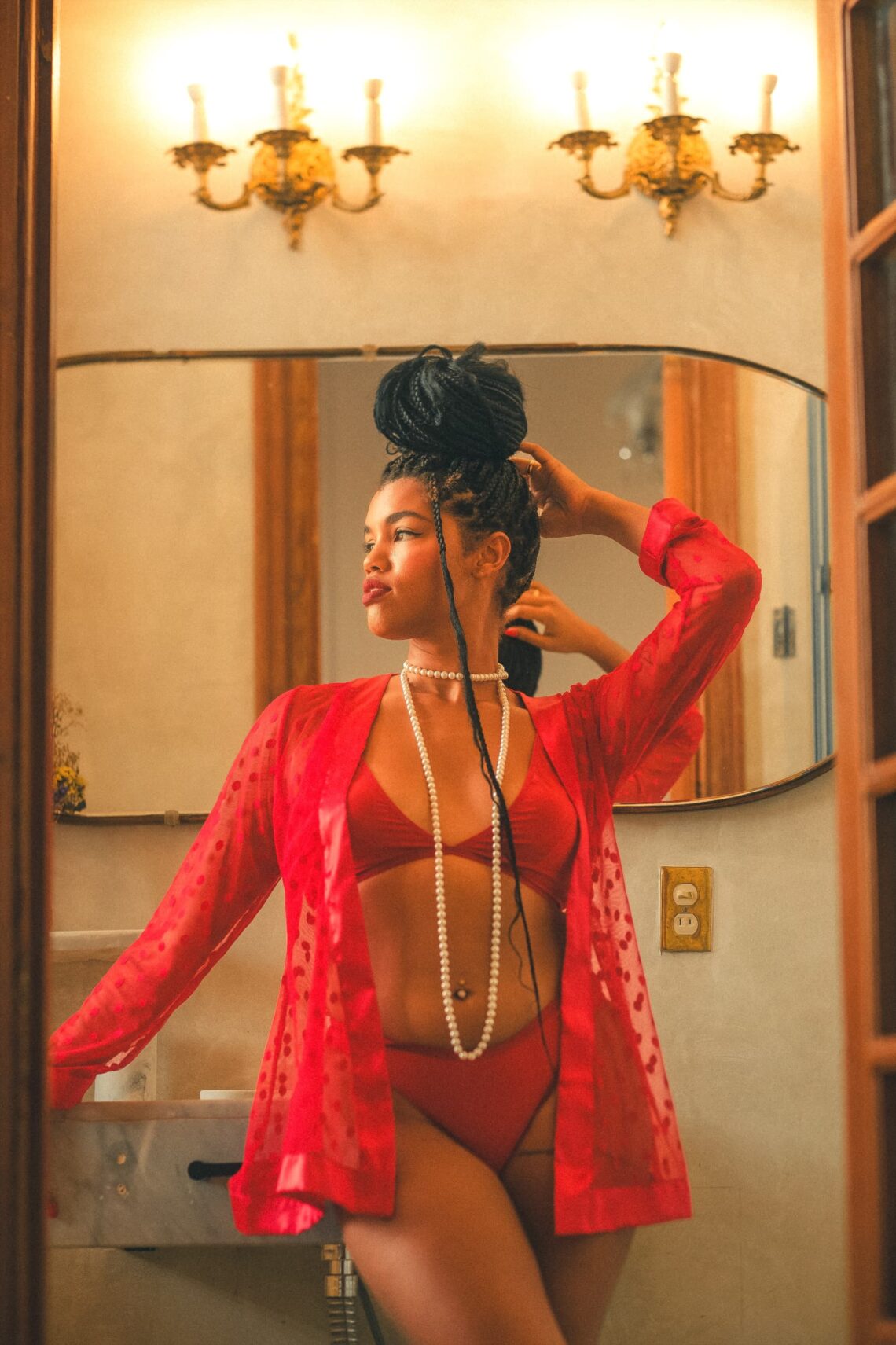
What have you had to learn to startup and maintain an intimate fashion business in Cuba today?
Everything. Much more so in my case, as I come from a profession that is quite “rough.” I went from working in ovens in the heart of Antillana de Acero to living in sewing workshops. I had to learn about fashion, clothing culture, sewing and sales, even though I was always interested in dressing well and understood many things empirically. But I had to let myself go and learn from someone who knew more about all of that. At first I didn’t design any of the pieces, I worked with two people who knew how to do it, until I learned.
But managing an intimate fashion business is very difficult; I am still in the learning process. Aladia, for example, is aimed at a type of customer who perhaps does not have to cover so many basic needs, but whatever the case, lingerie is not a priority in consumer needs, nor are they products that are bought every day, especially when the brand guarantees durability and quality, which is our case. We have cycles of new purchases from the same customer every two or three months.
For all the above, added to the situation in the country, staying afloat is not easy.
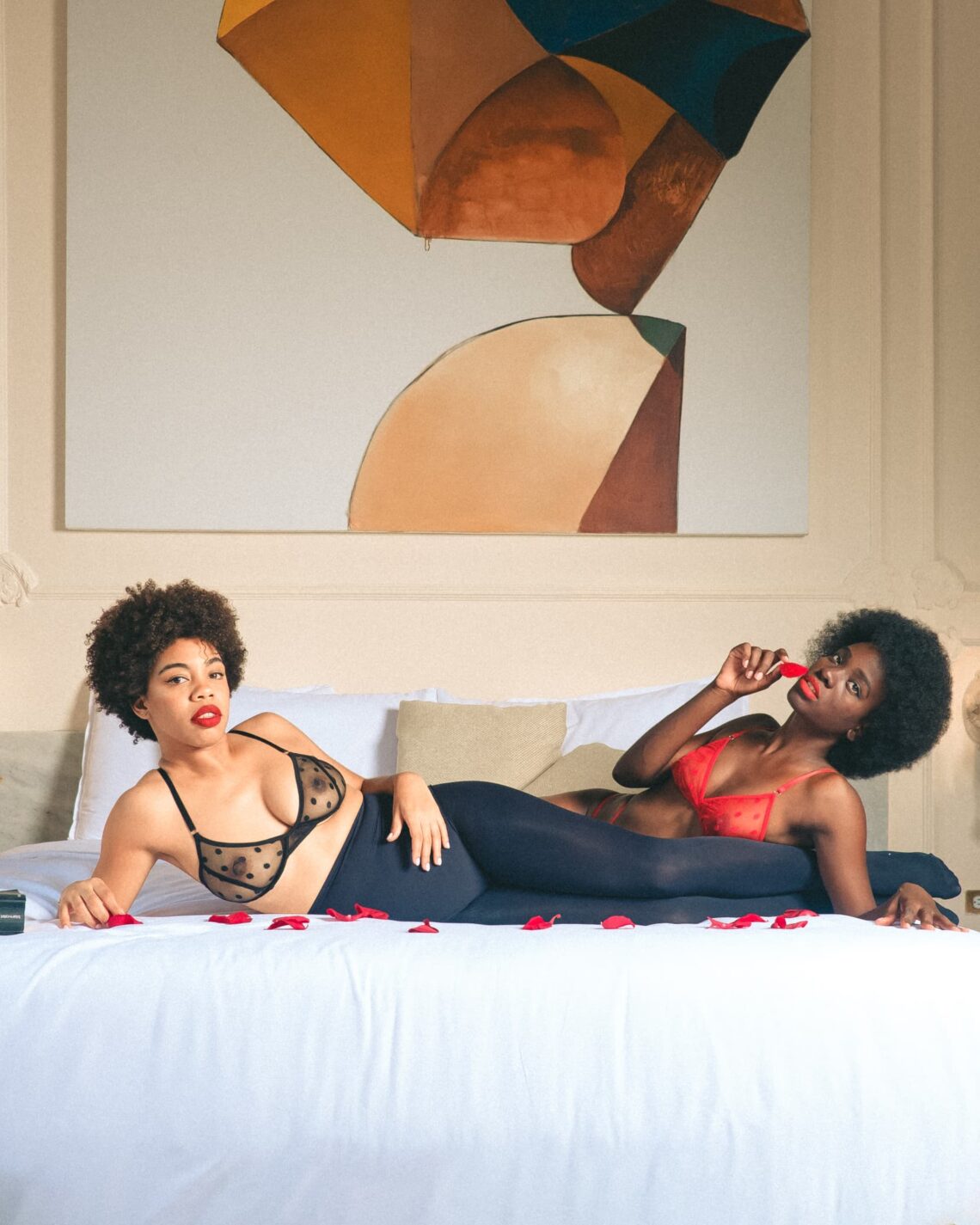
Aladia is a 100% Cuban brand, which means that its manufacture depends on local labor. How do you manage the production process, from when you have the idea for a garment to its sale in the shop windows?
I get ideas based on how trends behave among my international references, which are Skims and Intimissimi. I am not a designer nor do I draw well, but I make sketches and try to explain my ideas to the modeler so that she creates based on that base. Then that sketch goes to the seamstresses. Since we do not have a physical space in which to meet, the seamstress does not participate in the modeling process, nor does the modeler in the sewing process. I do the mediation. It is complicated, but it is achieved. Then come the photos, the advertising and uploading all that to our online store, the way we currently sell.
In times dominated by fast fashion and immediate delivery, Aladia is betting on “made-to-measure” garments. How does this promotion method challenge or drive you in your business?
Aladia serves all types of public. Those who want a garment that adapts to their body well understand that the creative process takes time and do not care if it goes out of style. This manufacturing dynamic has its contradictions. On the one hand, it is good because you distinguish yourself by exclusivity. On the other hand, it is bad because the fashion universe is very dynamic and trends change quickly. We are more interested in remaining exclusive than in meeting these changing demands, because my customers prefer it that way.

This year, Aladia garments paraded down the runways of Fábrica de Arte Cubano (FAC). Today, a great deal of what it means to keep a brand in the market falls on strategies to show its attributes, whether in a fashion show or by building a community on social media. How important is this for your enterprise and how do you use it to your advantage?
Fashion advertising, whether in fashion shows or on social media, is complex and you have to know how to manage it. My public uses the latter as a form of casual entertainment, not to follow fashion trends. This means that we don’t reach our niche as much through social media. We achieve this with fashion shows, fundamentally; although we don’t do many and we don’t want it to be that way. We would like them to be annual. This year FAC invited us to do one, called “Encuentros,” and we took advantage of the opportunity. It was very good because it translated into sales and visibility for the brand.
We are working on expanding our pieces to other publics, so we are creating a more accessible production line that will allow women with less purchasing power to wear our garments. With this public, the communication strategies will obviously be different, always maintaining quality standards.
What opportunities and challenges are there in Cuba for entrepreneurship?
There are many opportunities, because our country has a fairly virgin market. There are also many challenges, because we have a legal environment that is not very favorable for entrepreneurs, and that means that there are not many start-ups. Because the context is so unstable, people are afraid of risking everything they have, investing in something and then losing it, not necessarily because the business is not good, but because here you never know what can happen tomorrow.
Another thing is that the needs of our population today are basic. If your sector is not the gastronomic one, for example, which will always be a priority under current conditions, you will have more difficulties to make it profitable and prosper.
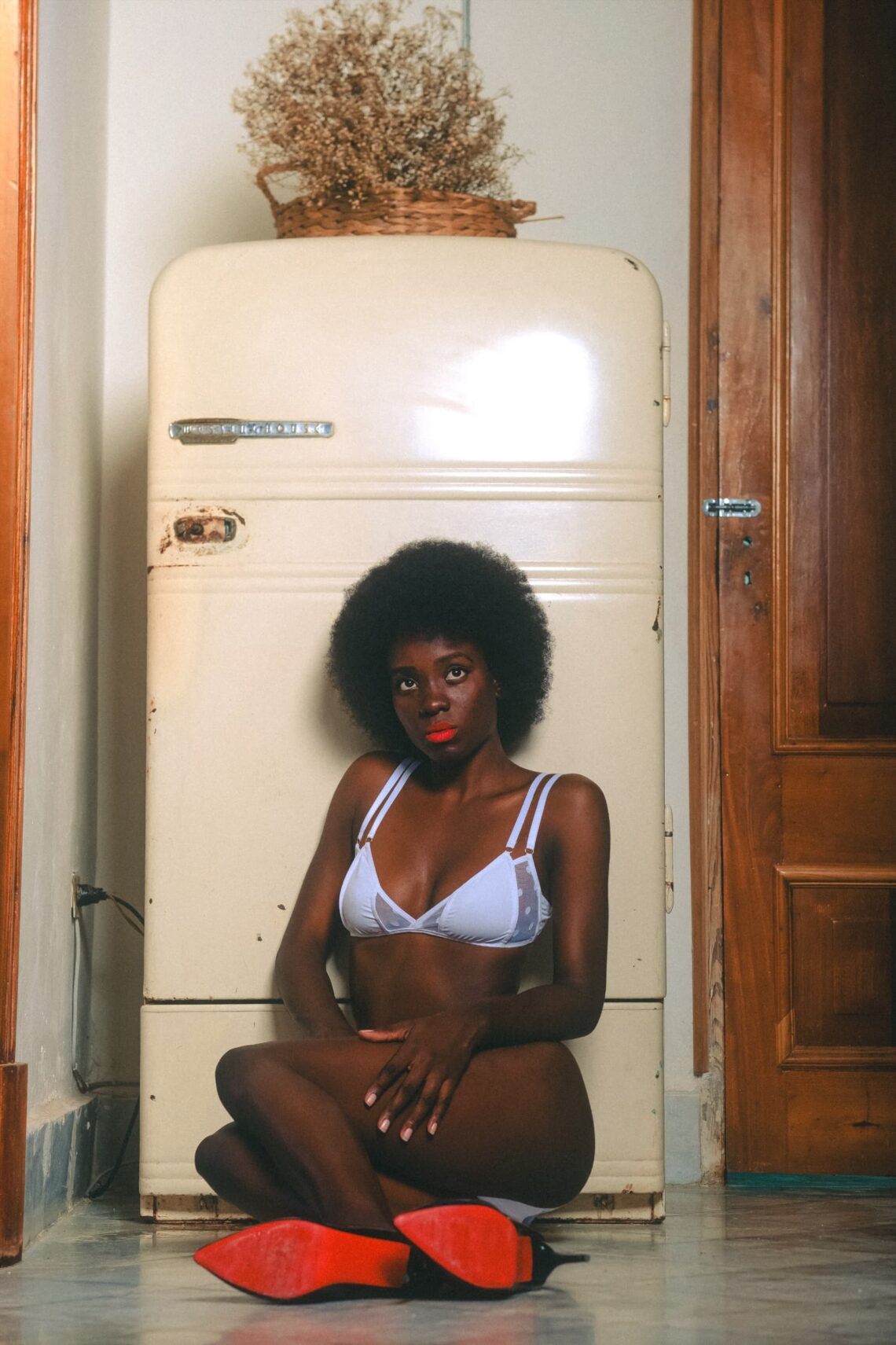
In the fashion sector we can do many things, and there is talent, but many people do not take risks because of the variables I mentioned before. Eating is a necessity, and so is dressing; but exclusive fashion is not going to be the priority; much less fashion made in Cuba. Those who can buy clothes generally buy imported fast fashion, because they feel that it is cheaper and of better quality than what we produce here.
Despite these challenges, the adventure of starting a business in Cuba is nice, and it teaches you a lot about being patient and resilient in order to carry out your project. It is a constant roller coaster, sometimes you are up, and sometimes you are down.

